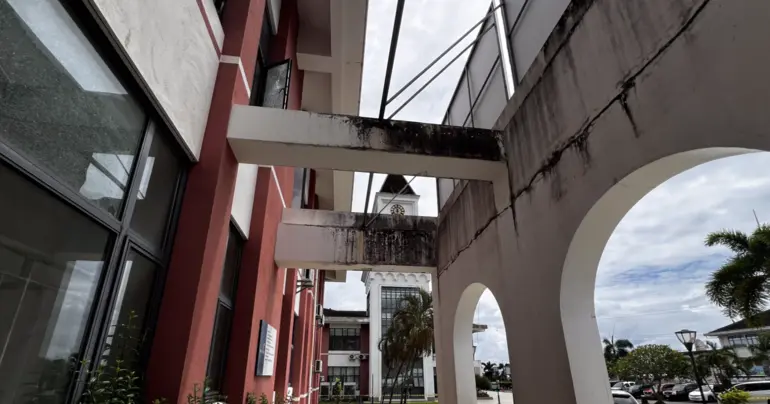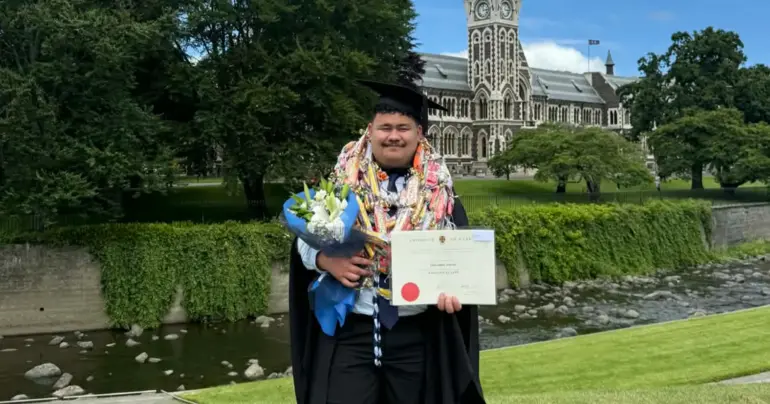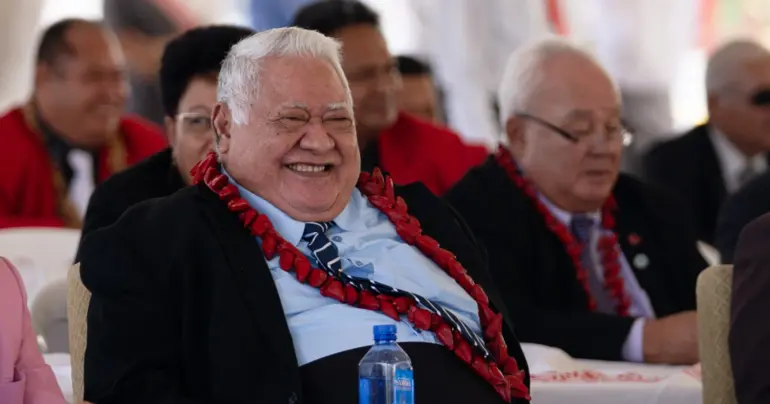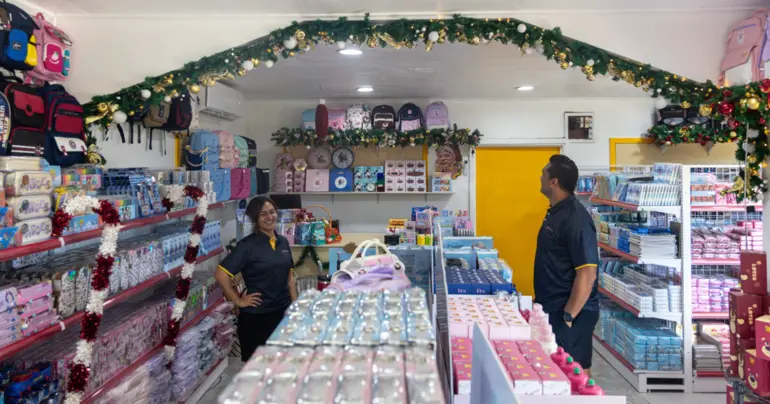Ban on niu exports to remain in force
 By Sapeer Mayron
•
18 September 2020, 4:00PM
By Sapeer Mayron
•
18 September 2020, 4:00PM
Samoa is no closer to lifting a ban on niu exports, with supplies of local coconuts still not up to the Government’s expectations.
Minister of Agriculture and Fisheries Lopao’o Natanielu Mua said despite starting the ban in 2017, he is still not ready to let exporters send out young coconuts for drinking (niu) en masse.
Instead, he wants another two million coconut trees planted before 2025 to replace Samoa’s senile coconut population, which was allegedly being depleted by mass exports of immature coconuts for drinking.
But coconut exporter Papalii Grant Percival said banning niu exports will not increase mature coconut production.
“The ban is only reducing the viability of the industry […], it is counter-productive and not making the farmer go out there and plant more trees, or address the rhinoceros beetle problem.
“There are endemic problems within the community in terms of the labour requirements,” he said.
“Most kids don’t want to go around collecting coconuts, it is a thankless task, and you end up carrying 50 kilos from wherever you pick it up half a mile to a mile to the road, then go back and pick up some more,” he said.
In a detailed letter to the Samoa Observer in response to complaints from the industry, Lopao’o said the industry has been patient and understanding so far with the Government’s decision to ban niu exports.
“I acknowledge with much appreciation the understanding, patience and cooperation of our sector stakeholders and our people with the temporary ban of the export of niu,” he said.
“I encourage us all to scale up our efforts and help M.A.F. with our collective replanting programs to replace the senile and unproductive coconut trees, and apply good agronomic and integrated coconut pest management practices, so that all of us will realize the long term economic benefits from existing and emerging markets demanding products processed from the coconut resource, and especially for the benefits of our future generations.”
Until a “critical mass” of productive local tall coconuts are ready for export, Lopao’o will not be ready to lift the export ban on young coconuts, he said.
“After all, it is for their own long term benefits and for our future generations,” he said of Samoa’s farmers, calling on their help.
“We often refer to the coconut tree as the ‘Tree of Life', and in Samoa, there is none more useful than the coconut tree.”
Of the two common coconut breeds in Samoa, the ‘local tall’ variety is perfect for high value products like coconut cream, oil and copra for animal feeds and other uses.
The other is a hybrid that is not particularly useful for much else other than drinking, for which it is perfect.
It’s why the Government established a hybrid coconut breeding farm in the 1980’s and distributed thousands of seedlings to farmers around Samoa to start large plots of hybrid palm destined for the lucrative coconut water market.
A niu is worth between three to five times as much on the export market as it sells locally. It’s a significant difference for a farmer, who only stands to earn $0.10 per mature local tall coconut heading towards the production line.
It’s why the Government was worried farmers were selling off immature local tall coconuts and potentially robbing Samoa of a steady supply of mature ones.
Vice-President of the Samoa Federated Farmers group Papalii Panoa Tavita was the chief economist of the Ministry of Agriculture when it established the breeding farm, and he told the Samoa Observer he was disappointed when the farm was discontinued and the country eventually ran out of seedlings.
He said farmers cannot regenerate their supply using grown palms because the genetic strain weakens.
“The Government made a decision without offering a proper solution to the problem,” Papalii Tavita said of the niu export ban.
“They should re-establish the hybrid coconut farm to produce seedlings to give to the farmers to grow so that in three years’ time they will have coconuts to export and they won’t export good [green] quality, local tall.
“You need a hybrid farm continuously producing quality seedlings.”
He said it is not fair to ask farmers to stop exporting one of their best earners without some kind of replacement, though the intention is to protect the coconut sector.
“You have to give the people the opportunity, look at the economics of it. They get a better price.”
Papalii Tavita said farmers are members of the S.F.F. complain often about the ban taking away one of their best sources of income without compensation.
Lopao’o said the Ministry opted to help farmers diversify their income by growing other cash crops like fruit, vegetables, cocoa and taro.
Most have responded positively, he said, “given the rationale behind the temporary ban.
“We all know that the price of one niu is three to five times the price of one matured nut, and higher in the tourism market but we need to manage the unnecessary overharvesting of niu.”
He said currently the Ministry is focusing its replanting efforts on the local tall variety and will not look to reestablish the hybrid breeding farm immediately.
“The Local Tall variety is the most preferred variety as it is comparatively more resistant to coconut pests and diseases, [has a] high quality oil content, long production period, and [is nutritious and sweet].
“Our ongoing replanting efforts are focused on this variety to support high demand for production of the matured nuts and products processed from them (coconut oil, coconut cream, etc.) for export purposes.”
The hybrid variety has large nuts ideal for drinking, he agreed, but there are lots of these trees around Samoa. A replanting effort will be done in a “managed approach,” with priority first and foremost on the local tall, he said.
To help farmers grow more local nuts for export, Samoa embarked on a ten year bonus scheme that involved mixed coconut and cocoa cropping, that was recently wrapped up. Lopaoo said this programme resulted in 920 acres of new crops, planted by 363 smallholder farmers.
“We also plan to bulk up the supplies of the sprouting nut (o'o) for distribution purposes under our COVID-19 stimulus package including taro distribution and livestock related incentives,” he added.
Papalii Grant Percival said despite many well-intentioned efforts, among the biggest problems in the coconut industry is how labour intensive the task is.
Already across Samoa there are millions of uncollected coconuts on the forest floor, which could meet and even exceed the export demands but it is too tiresome and not lucrative enough to collect them, he said.
“If we were picking up even half of them we would meet all the industry needs.”
But the industry needs help. In the German ruled era of Samoa, donkeys helped the coconut industry grow exponentially, he said.
“Samoans can’t carry more than 50 coconuts for a mile or so. You can get 100 coconuts in each basket on a mule and it can take it all the way.
“Efficiency is missing right now and we are turning our poor people, our kids, into donkeys.”
Papalii Percival is also concerned that Samoa will continue on its path of exporting its strongest group of labourers for seasonal work in Australia and New Zealand, leaving a limited workforce behind to drive the country’s ambitious export goals.
“The problem is not getting the copra, it’s getting workers to get the coconuts to turn into copra. We are using technology that is behind German technology used in 1860, that allowed them to do 1000 tonnes of copra a week.
“We are struggling to make that a year.”
Lopao’o said he understands the difference in labour required to pick young coconuts from shorter trees as compared to harvesting thousands of mature nuts.
He has been in discussions with commercial operators on less labour intensive harvesting options, but he expects they will be more expensive.
Some farmers have used the COVID-19 Stimulus Package duty concession on agricultural equipment to import four wheel drive vehicles to help them collect coconuts, and those requests are currently being processed.
“The issue of loss of family members to overseas seasonal work, it is a much bigger challenge and not just confined to potential financial benefits from the sales of niu as the only solution,” Lopao’o said.
“Without our young educated and skilled people, we will struggle to enhance and maintain our food security, increase import replacement and expand our export markets, and this is now more critical in the post COVID-19 environment we are living in.”
The Ministry is working hard to incentivise people to stay in Samoa and make money from their farms instead of migrating for “perceivable better employed and livelihood opportunities,” he said.
“This will require not just M.A.F. and the agriculture sector to promote and implement, it requires the support of everyone.”
Papalii Percival imported a four wheel drive for use on his plantation and said while it is hard to use when the bush is overgrown, it comes in especially handy during the wet season where a smaller car might get stuck in the mud.
Meanwhile the rhinoceros beetle continues to decimate the young coconut trees being planted to replace the old ones before they can be productive.
Papalii Percival said the beetle problem will be solved once and for all with a biological control virus that has already been trialled in Vanuatu and Fiji, that only affects the beetle.
Cognisant of the rhino beetle infestation Lopao’o said without a solution all the replanting efforts are a waste of time.
One solution has been to distribute chainsaws to villages to help them with “field sanitation” and get the beatles before they mature.
Much like Lopao’o hopes to do, Papalii Percival said the complex needs of the coconut industry require a holistic approach.
“We have got to work with the private sector and work as a country […], everyone is looking for the magic bullet, but I have never believed in a magic bullet.”
“At present everyone is doing their thing and competing with each other and blaming each other instead of saying how can we make this work so that everybody benefits.
“There is a need for a variety of revenue streams for the poor farmer, because in the end the guy who goes out and picks it up needs to be paid and needs to earn some money.”
 By Sapeer Mayron
•
18 September 2020, 4:00PM
By Sapeer Mayron
•
18 September 2020, 4:00PM











